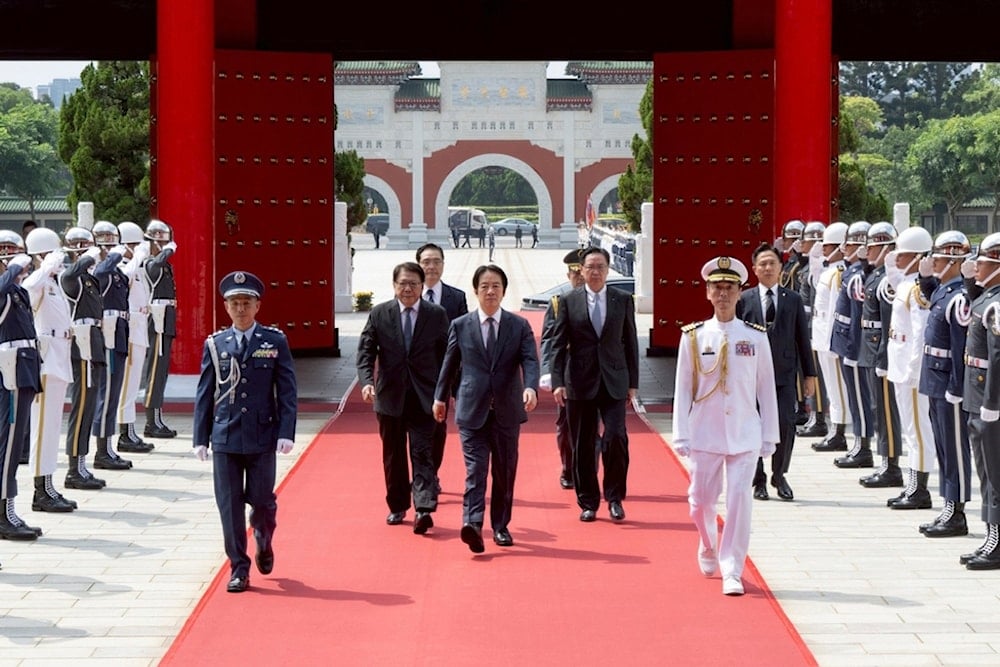Taiwan okays funds for ships, drones against perceived China threats
Beijing has constantly warned that military buildup risks heightening cross-strait tensions.
-

Taiwan's President Lai Ching-te, center, arrives for a ceremony honoring soldiers and officials during Taiwan's Armed Forces Day on Wednesday, September 3, 2025, in Taipei, Taiwan. (Taiwan Presidential Office via AP)
Taiwan’s cabinet approved on Thursday a NT$550 billion ($18.1 billion) special budget aimed at strengthening “national resilience,” with a significant portion dedicated to defense spending on new ships and drones. The move underscores President Lai Ching-te’s effort to prepare the island against what he perceives as rising military pressure from China.
Of the package, NT$150 billion ($5 billion) will go toward bolstering Taiwan’s defenses, including the purchase of patrol vessels and drones, as well as support for training. “The spending would help increase our combat readiness, while also strengthening our reserve force training and one-year mandatory service training,”
Defense Minister Wellington Koo also told reporters in Taipei that Taiwan extended its compulsory service period to one year in 2024, up from four months.
Lai’s security strategy
Since taking office, Lai has made military preparedness a cornerstone of his agenda, staging the island’s largest-ever drills in July.
The US, Taiwan’s main security partner, has urged Taipei to invest more in its own defense. President Donald Trump has pressed Taiwan, as he has with NATO allies, to shoulder greater responsibility. Last month, Lai said defense spending is on track to reach 5% of GDP by 2030. His administration has already proposed a record NT$949.5 billion ($31 billion) defense budget for next year, a 23% jump compared with 2024.
Taiwan’s defense push comes amid fraught US-China relations. During a call on Tuesday with US Defense Secretary Pete Hegseth, Chinese Defense Minister Dong Jun warned that “any attempt to support Taiwan’s independence would fail.” The issue remains one of the most sensitive flashpoints in the relationship between Washington and Beijing, alongside trade and technology disputes.
Beyond defense, the funding plan allocates NT$236 billion ($7.8 billion) for cash handouts to the public and support for industries affected by US tariffs. The government said the program will be financed through budget surpluses and debt issuance.
Before taking effect, the spending package must clear Taiwan’s legislature, where the opposition holds a slim majority. That could present hurdles for Lai’s government, though the administration has emphasized the urgency of passing the measures.

 3 Min Read
3 Min Read










